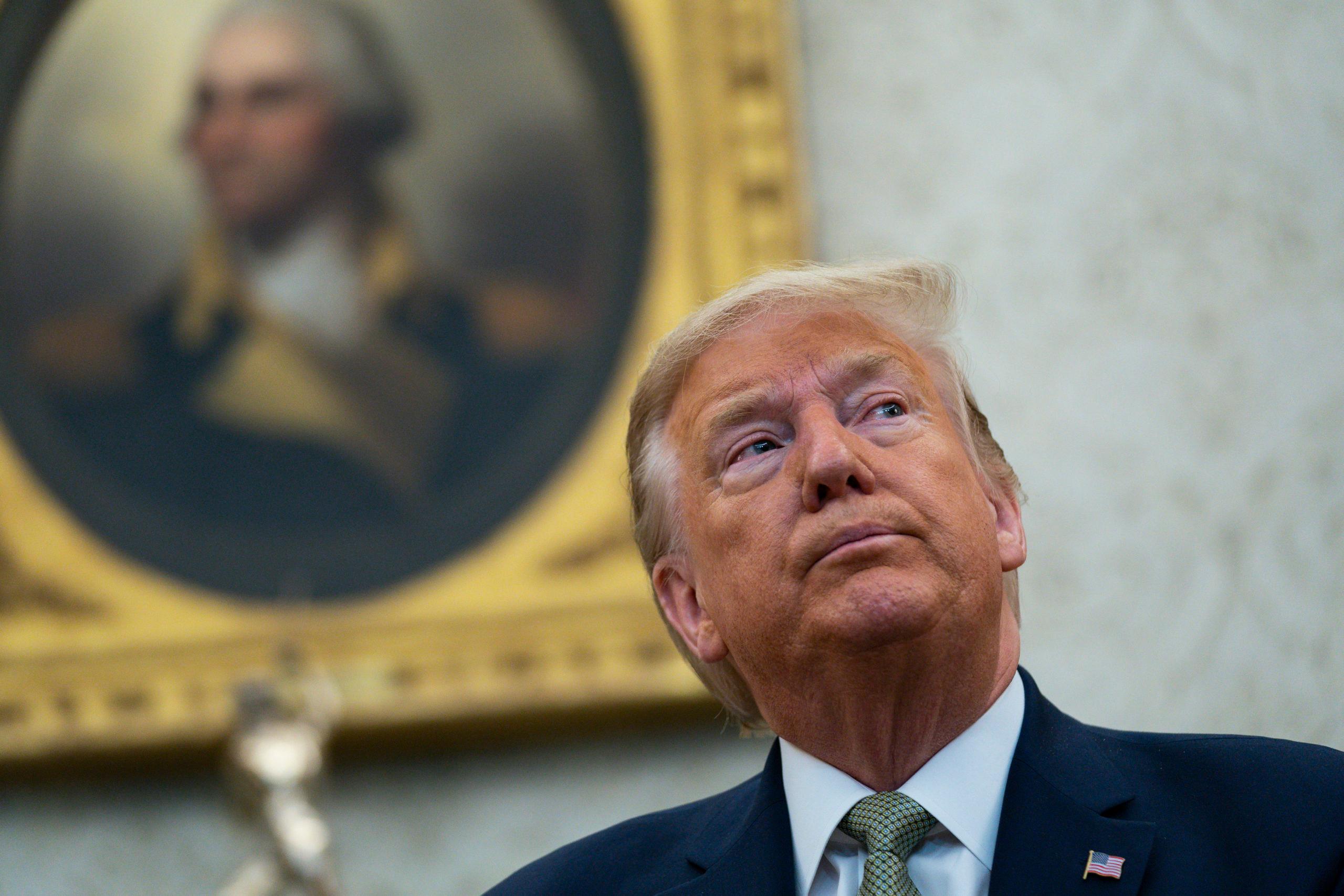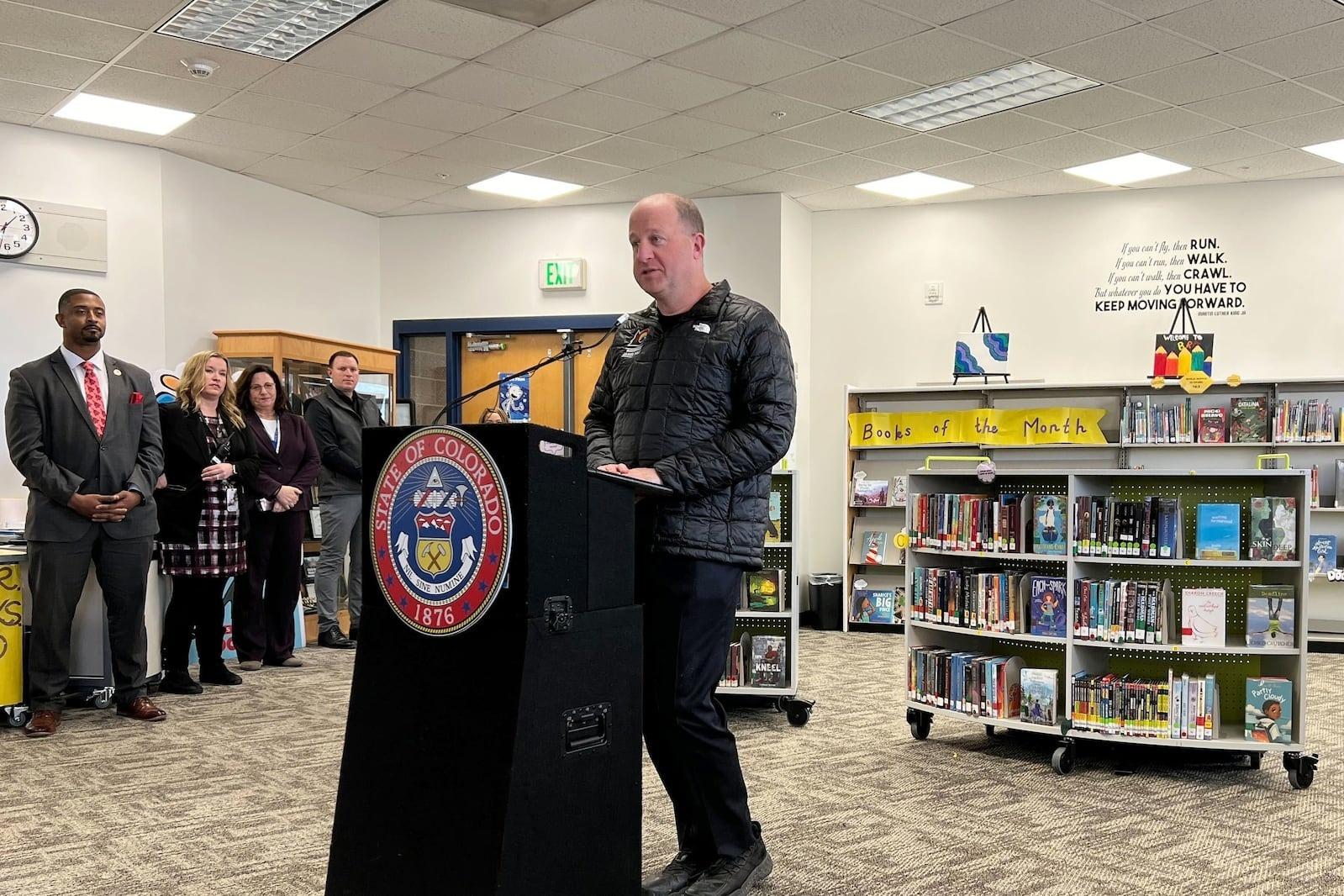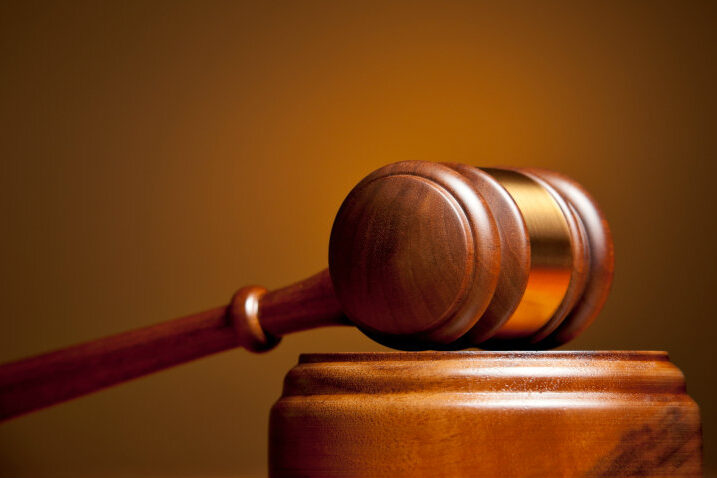
The highest court in the nation will decide whether Coloradans can vote for former president Donald Trump in the state’s GOP primary this March.
The court announced Friday afternoon it will hear an appeal from the Trump campaign to the ruling that disqualified him from Colorado’s Republican primary ballot. Oral arguments are scheduled for February 8.
In December 2023, the Colorado Supreme Court ruled 4-3 that Trump committed insurrection around the Jan. 6 attack on the U.S. Capitol and is barred from holding elected office by Section three of the 14th Amendment, known as the Disqualification Clause or Insurrection Clause.
Shortly after Colorado’s ruling, the high court in Michigan denied a similar effort. Since then, Maine’s top election official also disqualified Trump from that state’s primary ballot, while her counterpart in California declined to do so.
Both Trump and the Colorado GOP appealed the state court ruling on numerous points. Among their arguments:
- The attack on the Capitol was a political protest that turned violent and doesn’t qualify as an insurrection under the 14th Amendment, which was passed in the wake of the Civil War.
- Trump’s words before and on Jan. 6th were constitutionally protected free speech and can not be considered as inciting insurrection.
- Only Congress should have the power to disqualify federal candidates under the 14th Amendment because leaving the question up to state courts or election officials will result in an unacceptable patchwork of decisions.
- The Disqualification Clause does not apply to the presidency because that office is not on the list of positions the clause specifically mentions.
- And the Disqualification Clause only bars people from holding office, not running for election, so it is improper to use it to remove Trump from the state’s ballot.
The group of Republican and unaffiliated voters bringing the case contend that the Disqualification Clause logically applies to the presidency because it would be irrational that lawmakers intended it to cover so many levels of government, but not the highest office in the country. They also argue that Trump can be barred from holding office even if he isn’t convicted of a specific crime in court, a line of reasoning Colorado’s supreme court found persuasive.
Both sides will have little time to prepare for their day before the high court; the first briefs in the case must be filed by Jan. 18.
"This is incredibly fast tracked," said professor Carl Tobias of the University of Richmond College of Law. "The exigency calls for that, but full briefing and argument usually takes three or four months on (the court's) regular schedule."
Tobias said the court couldn't avoid taking up the case, given the need for national clarity on Trump's eligibility, but that the Justices also "deserve some credit for taking this on because it is going to be controversial no matter how they rule."
Colorado was a good state to challenge Trump’s eligibility to be on a statewide ballot because of a 2017 law that opened primaries up to unaffiliated voters.
That law also included a requirement that the state has a role in assuring candidates on ballots are “qualified,” according to Eric Olson, the former solicitor general who is now representing the Republicans and unaffiliated plaintiffs.
Under federal law, the only people who can challenge a candidacy is an opponent of a candidate, Olson said, and so this battle had to be taken up within states.
This case marks the first time the U.S. Supreme Court will weigh in on how to apply this section of the Constitution. Before 2021, the clause had only been invoked a handful of times since its ratification.
"Thank God they are taking this case," the Colorado GOP wrote in a fundraising email that went out minutes after the Supreme Court's announcement. "We are fighting to win because the stakes are high and the consequences are dire if they rule against us. If this unAmerican decision is allowed to stand, then other states across this country will remove Trump from the ballot in addition to Maine."
The one thing that all sides agree on is that they want the Supreme Court to act swiftly.
“I urge the Court to consider this case as quickly as possible,” said Colorado Secretary of State Jena Griswold, a Democrat. “Coloradans — and the American people — deserve clarity on whether someone who engaged in insurrection may run for the country's highest office."
Griswold certified Colorado’s primary ballots on Friday. The GOP ballot does include Trump’s name, because the case is still in progress, but votes for him will only be counted if the Supreme Court strikes down Colorado’s ruling.
For his part, Olson, a former U.S. Supreme Court clerk, has asked that the arguments be held on Jan. 19, with a decision by Feb. 11 so that Coloradans can have some certainty before they get their ballots.
CPR’s Allison Sherry contributed to this story.
- Michigan Supreme Court will allow Trump to appear on 2024 primary ballot
- Colorado justices threatened after ruling removing Trump from the ballot
- Trump appeals Maine ruling barring him from ballot under the Constitution’s insurrection clause, expected to appeal Colorado ban
- Republicans decry ruling disqualifying Trump from Colorado’s primary ballot
- Colorado voters weigh in on Trump ballot ruling as experts closely follow a rare legal journey
- ‘This case will test America’s commitment to its democracy,’ says former judge who crafted 14th Amendment challenge against Trump









